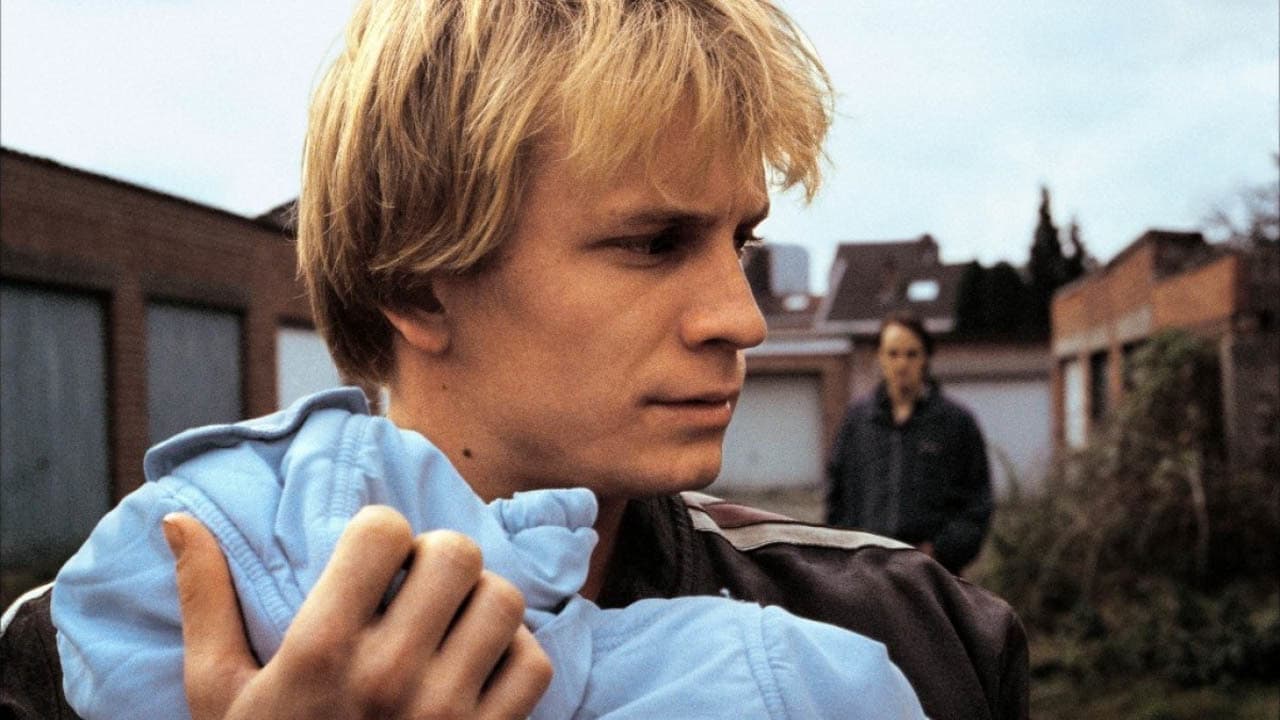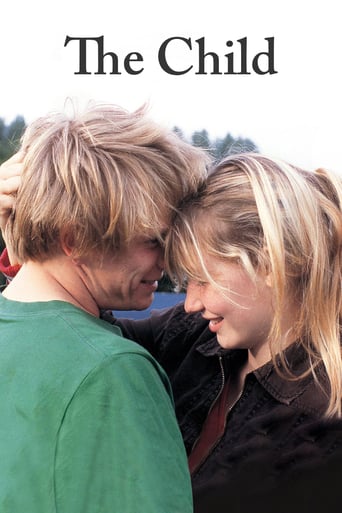

The Dardenne brothers have more than just dabbled in social realism, they've made it their life's work. They began their careers in documentary and then moved onto using these roots to capture the everyday lives and conditions of the poor working class in their home country of Belgium. Like many of the realists predecessors hailing from Italy and Britain they shoot on location and usually in natural light; though some of their more recent features have adopted a brighter, cleaner aesthetic, this only further reveals how the guise of a more stable middle-class existence can still be shattered financially with one swift blow. If there is one constant demand of social realist films it is that they should not be condescending towards their characters. The Dardenne films never flirt with the idea that they are portraying anything more than simply a day in the life. The characters, captured in verite, are not asked to alter any of their routines as the film drops audiences into their daily struggle. Their cameras remain objective and never invasive - the car and motorcycle chase through the streets is shot from a perspective of civilians observing the scene from different points of views, yet there is never the suggestion of a stake in this race. The Dardennes recognise the tireless repetition in their characters lives and their bids for survival: in Rosetta it was the daily checks of her fish traps and refilling her bottle with clean water, in Two Days One Night it was the long agony in the walks up to another one of Sandra's colleague's homes, and here in The Child it is in the weary resignation of Bruno navigating public transport in his daily life. Detractors have dubbed these sequences boring and repetitive without reprieve, but they are missing the key point; these characters cannot afford reprieve from these actions because they must be done, and they do not have the luxury to chase more interesting endeavours. To skip or brush past the mundanities of their existence would be doing them a dishonesty. In the opening of the film we come to know Bruno before we even see him. Sonia returns from the hospital with baby in hand, only to find that he has opportunistically leased their apartment out in her absence - why let the empty space go to waste, while he is panhandling in traffic and she is in a nice warm hospital bed? Bruno himself is a wiry fellow sporting a head of dirty blonde hair and his favoured motorcycle jacket. Later he buys an expensive clone for Sonia too on a whim, although they both know they cannot afford it. He also splurges on a fancy perambulator and hires a convertible to pick her up for a ride through the town. What the Dardennes tap into is a typically self-destructive pattern of the poor, who see cash in hand as something needing to be spent, lest it vanish the next second. The irony of Bruno is that he directs more energy into his crooked schemes and scams than what would entail a proper job. Renier's bodily expressions capture Bruno in his natural element, snaking out of Sonia's attempts to ask him to find a stable living, or in the beginning, hold his child. Observe then, how the Dardennes portray his horrific act. It takes place in a nameless, unremarkable building. The shot is careful to obscure Jimmy's face wrapped within the jacket because that is how Bruno views the exchange, as nothing more than material goods for cash. The deed itself is rendered cold and clinical; he leaves the package on the floor as if he was merely selling a brick of cocaine, and a phone call later, he picks up his cash. To dive into Bruno's reasoning is to consider the mindset of someone living day to day, who knows no other logic than to ensure that every one of his actions is pointed towards survival. We discover, early on, that he was not at Sonia's bedside when she was giving birth. To the casual viewer this may seem cruel, but to Bruno this makes perfect sense - there is more money to be made, so why waste the time available? Sonia understands this line of thinking, although she also wants to break free of it. She stresses the importance of acknowledging Jimmy in a society that has cast them aside as misfits and petty thieves. Though the Dardennes acknowledge this callous treatment, they are not so quick to completely cast the blame aside of their characters. To do so would be to act as if they have no dignity or sense of responsibility. Bruno may not discover these until it is too late, and yet the strength of the film is that we still harbour a shred of hope for them.
... View MoreBelgian screenwriters, producers and directors Jean-Pierre and Luc Dardenne's sixth feature film which they wrote and co-produced, premiered In competition at the 58th Cannes International Film Festival in 2005, was screened in the Masters section at the 30th Toronto International Film Festival in 2005, was shot on location in Seraing, Liège in Belgium and is a Belgium-France co-production which was produced by French producer Denis Freyd. It tells the story about a nineteen-year-old man named Bruno who makes a living as a criminal in a city in Belgium where he hangs out with adolescent boys and lives with his girlfriend named Sonia. After Sonia has given birth to their first child, they are evicted from the apartment they have been living in, and Bruno decides to get himself involved in more serious criminal activity to support his girlfriend and their new-born son named Jimmy.Distinctly and engagingly directed by Belgian filmmakers Jean-Pierre and Luc Dardenne, this finely tuned fictional tale which is narrated from multiple viewpoints though mostly from the male protagonist's point of view, draws a vital, gripping and prominently authentic portrayal of how a Belgian couple's relationship is altered after they become parents for the first time. While notable for it's distinct and naturalistic milieu depictions, sterling cinematography by Belgian cinematographer Alain Marcoen, production design by production designer Igor Gabriel, costume design by costume designer Monic Perelle and use of sound, colors and light, this character-driven and narrative-driven story about a man's unusual ways of coming to terms with becoming a father and how instantly and poignantly affected his life is by the arrival of his first son, depicts two isolating and merging studies of character. This down-to-earth, at times conversational and at times humorous drama from the mid-2000s which is set during the course of five days in a municipality of Liège in Belgium in the 21st century and where a newly mother is expecting her boyfriend to be the family provider and he figures that the best way to fix the situation they have gotten themselves into is by selling their infant, is impelled and reinforced by it's stringent narrative structure, substantial character development, rhythmic continuity, dense examination of its central themes and Bruno's internal changes, scenes between Bruno and Sonia and Bruno and Steve and the reverent acting performances by Belgian actor Jérémie Renier and French actress Déborah Francois. A consistently dramatic, charmingly romantic and increasingly heartrending narrative feature which gained, among other awards, the Palme d'Or at the 58th Cannes Film Festival in 2005.
... View MoreI will admit up front that I didn't watch this entire movie. Why? Because I couldn't make it past the first 30 minutes.The mother and father are portrayed as adult children with a child of their own. I suppose if I had kept watching, the father, Bruno, would be revealed to be the true infant who proceeds to grow up during the film.Whoever wrote and directed this movie obviously has no experience with childbirth. The young lady who has just given birth is shown dashing around, chasing and being chased by her boyfriend, and also telling him she wants to sleep with him. I've given birth 4 times, and can guarantee you that running, chasing, and sex are not something that new moms are capable of doing! Ridiculous.I only scored this 3* because I didn't see the whole thing, and perhaps it gets better as it goes on. Please, don't waste your time.
... View MoreShort, direct and poignant,'L'Infant' is the story of Bruno, an irredeemably feckless young man, who finds himself utterly out of his depth on becoming a father. Bruno's sense of irresponsibility is tragic, but so extreme as to be comic as well; yet he wins our sympathy because he is not innately wicked, and even acts in accordance with a certain moral code: it's just that this code is that of a child, and wholly insufficient for adult life. The film is shot in a sparse, documentary style, there's a little visual poetry in its depiction of the underbelly of urban Belgium, but in essence this is a well-acted, fresh and economical movie, without pretensions of any sort; but whose realism imparts power, particularly to a couple of understated, but truly horrific scenes that made me nervous in my seat.
... View More